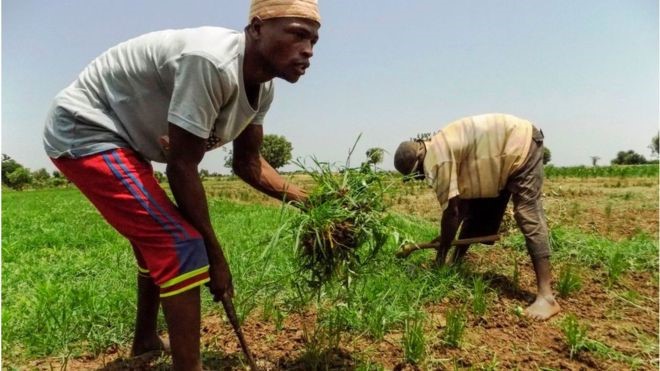By Kunle Falayi
President Muhammadu Buhari has directed the Central Bank of Nigeria to block food importers’ requests for foreign currency in a bid to boost local agriculture in Africa’s most populous country.
It is a continuation of a policy that the president began after coming to office in 2015, when he banned the use of foreign exchange to import dozens of items including the staple food, rice.
Since then, domestic rice production has increased, but the policy has been criticised for not taking the low capacity of local farmers into consideration. The policy has also coincided with a rise in food prices, which has been blamed on insecurity in some of the country’s main food producing areas.
How much is Nigeria spending on importing food?
According to data from Nigeria’s National Bureau of Statistics (NBS), the amount of money the country has been spending on importing food and drink increased from 2015 to 2017, dipped in 2018 and if the trend from the first quarter of this year continues, the bill will go up again for this year.
In 2015, Nigeria spent nearly $2.9bn (£2.4bn) and by 2017 that had risen to $4.1bn, the NBS says.
Would restricting food imports boost local production?
Many experts believe that the policy of restricting food imports does have some merits, but the policy cannot be introduced in isolation.
Agricultural economist Idris Ayinde argues that restricting food imports should be a gradual process since the country cannot yet meet domestic demand for most food commodities, and the policy risks increasing food price inflation further.
Local rice production has increased, but the foreign exchange ban was coupled with policies aimed at supporting farmers through subsidies and loans.
For instance, last November, the government spent $165m subsidizing rice production. Despite this, people continue to buy rice that has been smuggled into the country…Read more>>



